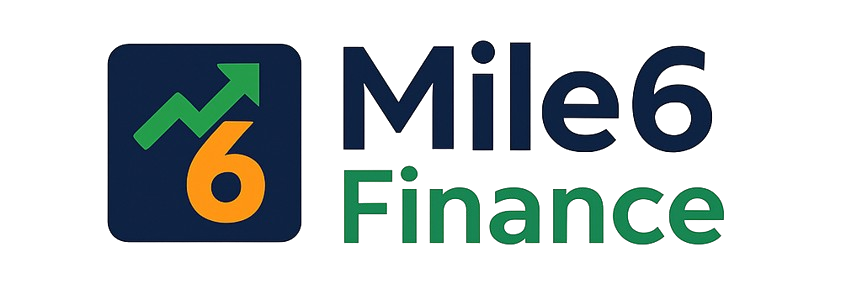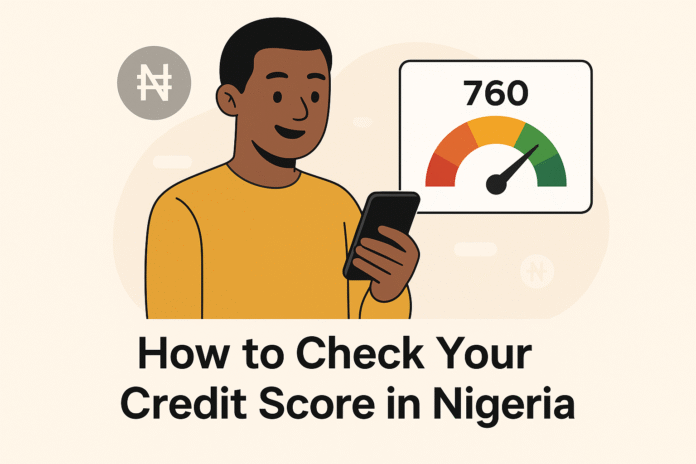Understanding your credit score is a major part of managing your personal finances in Nigeria. Whether you’re applying for a loan, planning to buy a car on credit, or just want to track your financial health, knowing your credit score gives you a solid edge.
In this easy-to-follow guide, you’ll learn how to check your credit score in Nigeria, step-by-step. We’ll also explore practical tips, apps to use, common mistakes to avoid, and answer some frequently asked questions.
What Is a Credit Score?
A credit score is a 3-digit number that shows how creditworthy you are—basically, how likely you are to pay back borrowed money. In Nigeria, credit scores typically range from 300 to 850.
- High score: Low-risk borrower.
- Low score: High-risk borrower.
Your score is calculated based on your loan history, repayment habits, and overall debt profile.
Why You Should Check Your Credit Score
Here are a few good reasons to regularly perform a credit score check in Nigeria:
- Know where you stand financially.
- Boost your chances of loan approvals.
- Catch errors or suspicious activity early.
- Plan better using personal finance tools.
Tools & Platforms to Check Your Credit Score in Nigeria
Here are some reliable platforms to check your credit score:
1. CRC Credit Bureau
Website: https://crccreditbureau.com
- Register as an individual user.
- Submit your BVN, name, and valid ID.
- Access one free credit report every 12 months.
2. FirstCentral Credit Bureau
Website: https://www.firstcentralcreditbureau.com
Offers paid credit reports, loan history, and notifications via SMS or email.
3. CreditRegistry Nigeria
Website: https://www.creditregistry.ng
- Click “Get My Credit Report.”
- Register and verify your identity.
- View or download your report.
4. MyCreditScore.ng (Powered by CRC)
Website: https://www.mycreditscore.ng
A user-friendly option for quick credit score checks.
Personal Finance Apps You Can Use
These mobile apps help track your loan activity and affect your score:
- Carbon: Offers credit score insights and loans.
- Branch: Loan history affects your credit report.
- FairMoney: Reflects your repayment habits in your score.
Step-by-Step: How to Check Your Credit Score in Nigeria
Step 1: Choose a Platform
Pick any of the options above. For ease of use, MyCreditScore.ng is beginner-friendly.
Step 2: Register with Your BVN
Your Bank Verification Number (BVN) is required to retrieve your credit information.
Step 3: Verify Your Identity
You’ll need a valid government-issued ID such as:
- NIN Slip/Card
- Driver’s License
- International Passport
- Voter’s Card
Step 4: View Your Credit Score
Once verified, you’ll see your:
- Credit Score
- Loan History
- Repayment Status
Step 5: Take Action
If your score is low, take steps like:
- Paying bills on time
- Reducing debts
- Limiting unnecessary loans
Mistakes to Avoid
- Ignoring your credit score until you need a loan.
- Using fake apps or websites that steal your data.
- Applying for multiple loans in a short time.
- Defaulting on small digital loans — they still count!
Tips to Improve Your Credit Score
- Always repay loans before their due date.
- Use credit responsibly and avoid over-borrowing.
- Monitor your score with trusted apps or platforms.
- Report and fix any errors in your credit report.
Credit Score Check Nigeria – FAQ
1. Is checking my credit score free in Nigeria?
Yes, you get one free report per year from most credit bureaus. Additional reports may require a small fee.
2. Does checking my score affect it?
No. It’s called a soft inquiry and won’t impact your score.
3. Can I check my score without a BVN?
No. Your BVN is needed to identify you in the credit database.
4. How often should I check it?
At least twice a year, or before applying for a major loan.
5. Can I still get loans with a low score?
Yes, but you may get higher interest rates or lower approval limits.
Final Thoughts
Doing a credit score check in Nigeria is a smart move. It’s quick, easy, and free if you use the right tools. Your credit score affects your access to loans, interest rates, and even job opportunities in some sectors.
Be proactive, use personal finance tools, and build good financial habits. Your future self will thank you!








